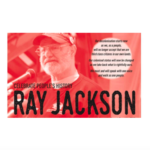Should Prisoners be Allowed to Vote?
Should being in prison prevent people from exercising their right to vote?
Being locked up as a punishment restricts the liberty of an individual, and it also isolates that person from the community.
By extension, this has historically excluded any participation in political life, too.
Australia law does place restrictions on the voting rights of prisoners.
Other consequences of doing time are also imposed, for example, being ineligible for jury duty either temporarily or permanently, dependent on the crime (although some may see this as a plus).
However in Australia, your right to vote is not automatically cut off as soon as you go behind bars.
In federal elections, prisoners can vote as long as they are serving a sentence of less than three years.
Prisoners who are already enrolled to vote will vote in the electorate of their address before they went to prison, not the location of their prison.
They can vote by post or using a mobile voting team that visits prisons.
Unsentenced prisoners can also vote.
But for prisoners serving sentences longer than three years, voting rights are withdrawn until they are released from prison, even if they are already enrolled.
Although prohibited from voting, those serving prison sentences over three years in length are not removed from the electoral roll.
But when it comes to state elections the situation is different, and the rules are governed by each individual state.
The restrictions on voting vary from state to state.
In NSW, prisoners can vote in state and local council elections if the prison sentence they are serving is less than twelve months.
In Queensland, any prison sentence will disqualify a person from voting in state elections, while in South Australia and the ACT there is no restriction on voting rights for prisoners at all.
Other states vary, restricting voting for those with sentences anywhere between one and five years in length.
However, the issue of disenfranchising prisoners is a controversial one.
Some are of the view that those who have rejected the rules of society by committing crimes have disentitled themselves from participation – and thereby lost their ‘right’ to vote.
On the other hand, the United Nations Human Rights Committee (UNHCR) considers it inappropriate to suspend the voting rights of prisoners, arguing that doing so adversely affects their rehabilitation into society after their release.
In 2006, the Commonwealth government passed legislation preventing anyone doing time from voting in federal elections, but this was struck down by the High Court as being unconstitutional.
Our Constitution may not guarantee a whole lot of rights, but the right to vote is one that is protected, although this protection is not absolute.
Arbitrary exclusion from voting is not permissible and the mere fact of imprisonment is not enough to separate a person from their voting rights.
This is particularly true for short periods of imprisonment, as they may be handed down as despite the crime not being particularly serious.
The law disentitling those with sentences under three years was found to be invalid, but for prisoners with longer sentences, the right to vote is still withheld.
So while the court found that absolute disentitlement to vote amongst prisoners was not acceptable, barring prisoners has not been prohibited altogether – and the rule excluding those with prison sentences of three years or more still remains.
What do you think: is it ever appropriate to disenfranchise those who break the law or is the right to vote inalienable even if a person has committed serious crimes?






